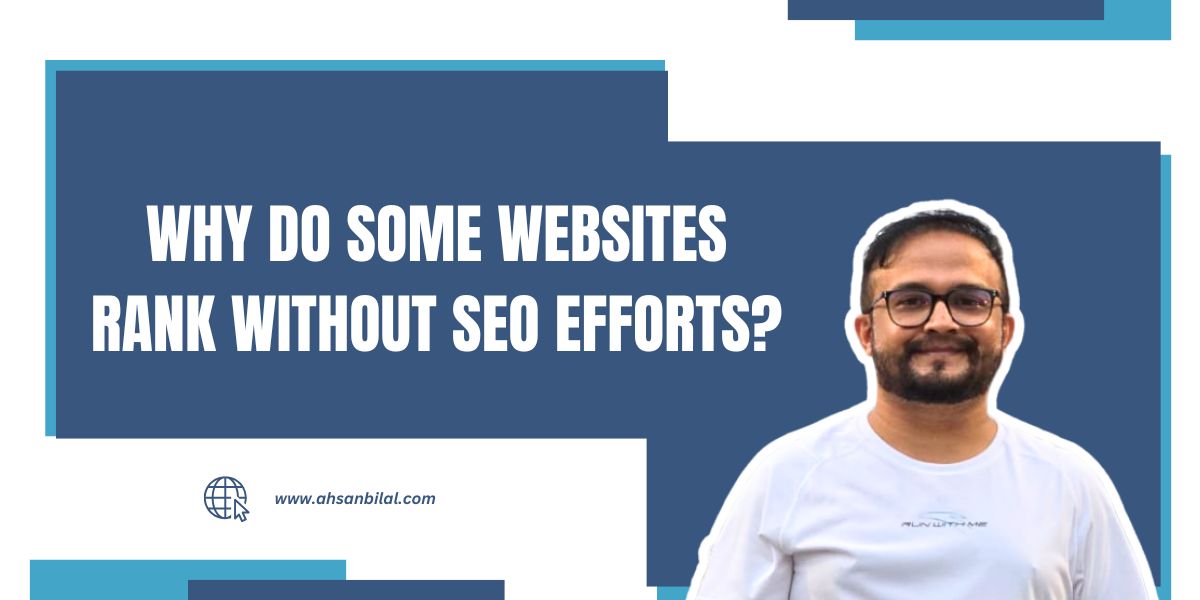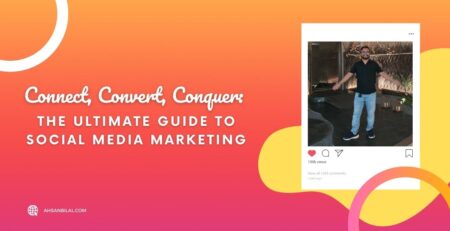Why Do Some Websites Rank Without SEO Efforts?
When discussing search engine optimization (SEO), it is easy to assume that achieving high search engine rankings requires a meticulously planned strategy. However, some websites appear to defy this logic by ranking well without obvious SEO efforts. This phenomenon often raises questions among SEO enthusiasts and website owners. In this article, we explore why some websites manage to perform well in search rankings without deliberate SEO practices.
Strong Brand Authority
A well-established brand with a strong online and offline presence can naturally rank high in search results. This is because search engines prioritize websites that users frequently search for by name. For instance, if a company is a household name or enjoys significant media coverage, its website can generate high organic traffic without relying on SEO tactics.
Example: Brands like Tesla and Apple often rank well for their products because they are widely recognized and trusted.
Exceptional Content Quality
Content that provides immense value to readers can organically attract backlinks, shares, and high engagement, all of which contribute to better rankings. If a website consistently delivers comprehensive, engaging, and insightful content, search engines are more likely to rank it higher, even in the absence of structured SEO strategies.
Key Factors:
- Unique perspectives on topics.
- Long-form, in-depth articles that answer user queries.
- Visually appealing and easy-to-navigate layouts.
Natural Backlink Profile
Websites with high-quality, useful content often gain backlinks organically. These links act as votes of confidence, signaling to search engines that the site is authoritative and trustworthy. When reputable sources link to a website, its search rankings improve without the need for intentional outreach or link-building campaigns.
Why It Matters: Search engines like Google evaluate the quality and relevance of backlinks to assess a site’s authority.
User-Centric Design and Experience
Websites that prioritize user experience (UX) often outperform others in search rankings. A fast-loading website, intuitive navigation, and mobile responsiveness can significantly impact its performance. Search engines reward sites that keep users engaged and satisfied, even if they lack traditional SEO optimization.
UX Elements That Boost Rankings:
- Mobile-friendly design.
- Minimalistic layouts with clear call-to-actions.
- Fast page load times.
Niche Relevance
Websites focusing on niche topics with limited competition can rank higher without extensive SEO. In smaller or highly specific industries, fewer competitors target the same keywords, making it easier for websites to climb the ranks naturally.
Example: A website offering resources on a rare hobby or localized services may rank well simply because of its unique focus.
Social Media and Viral Traffic
Websites that go viral on social media platforms can achieve high search rankings due to a sudden influx of traffic. Viral content drives massive user engagement, which signals search engines that the site is popular and relevant.
How It Works:
- Increased direct visits and shares improve authority.
- Search engines notice when users spend more time on a website, enhancing its credibility.
Domain Age and Trust
Older domains with consistent activity tend to rank better. Search engines view these domains as more credible, especially if they have a history of providing valuable content. Websites with long-standing trust signals often enjoy an edge over newer competitors.
Pro Tip: Regular updates to content and consistent user engagement help maintain rankings.
Minimal Competition Keywords
Some websites inadvertently target low-competition or long-tail keywords. These keywords often have less demand but can drive significant traffic when users search for specific queries. Websites ranking for these keywords don’t always need structured SEO to gain visibility.
Example: A blog post titled “How to Fix a Vintage Clock Gear” could rank highly if few other resources provide a detailed answer.
Influence of User Intent
Search engines focus on delivering results that match user intent. Websites that align perfectly with what users are searching for are rewarded with higher rankings. Even without traditional SEO practices, a website’s content can rank well if it directly addresses user needs.
Understanding User Intent:
- Informational: Providing clear, concise answers.
- Navigational: Helping users find specific brands or services.
- Transactional: Offering seamless shopping experiences.
Localized Traffic and Word-of-Mouth
For businesses that cater to specific geographic locations, positive word-of-mouth and local popularity can drive significant website traffic. Search engines prioritize these websites because they serve a localized audience effectively, even if their SEO efforts are minimal.
Tips for Local Success:
- Accurate business information online.
- Active engagement with the local community.
Conclusion
While SEO is a critical tool for enhancing a website’s visibility, some websites manage to rank without active efforts due to strong branding, exceptional content, natural backlinks, or niche relevance. These factors emphasize the importance of user-focused strategies and organic growth.
For those looking to replicate this success, focusing on creating valuable content and prioritizing user experience can yield long-term results without relying entirely on SEO techniques. However, a balanced approach that incorporates both organic and intentional strategies often delivers the best outcomes.










